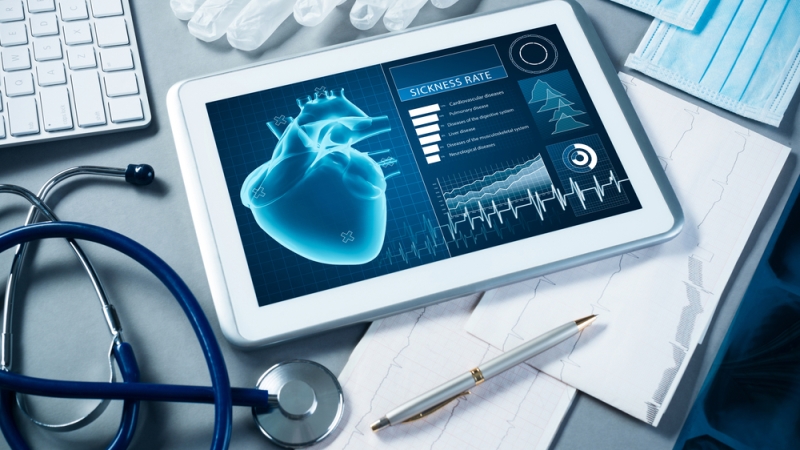
Amy Gilliland, president of General Dynamics Information Technology (GDIT), said today that the increasing acceptance and use of cutting-edge information technology is poised to help alleviate healthcare infrastructure weaknesses exacerbated by the coronavirus pandemic.
Speaking today at the GDIT Emerge Health 2022 event, Gilliland sized up the state of the healthcare sector as the pandemic eases – at least for now – and the technologies that can help the sector overcome three years of increased strain on healthcare professionals.
“Our mission at its most basic form is to ensure that healthcare is accessible and available to everyone leading to better health outcomes, and ultimately to improving and saving lives,” she said, adding, “this U.S. health mission, it impacts every single person every veteran, every child, every senior in every family.”
But today, she said, “our healthcare is on the verge of crisis” brought on by supply chain disruptions, difficulties in finding enough beds for people with flu, coronavirus, and RSV infections, and workforce burn-out.
“While demands for healthcare services continue to rise, there’s a shortage of professionals to provide them,” Gilliland said.
“One in five healthcare workers have left medicine since the start of the pandemic, and for those who stayed nearly 50 percent plan to leave in the next three years due to systemic burnout,” she said. “This puts even more strain and demand on our doctors, nurses, labs, hospital systems, and health care agencies.”
The continued development and deployment of advanced IT to the healthcare sector could not be coming along at a better time, the GDIT executive said.
“Here’s the good news: at a time when our nation’s healthcare infrastructure is so fragile, we are also at the dawn of a new era of healthcare, one uplifted by technology – advanced technologies like AI [artificial intelligence] and machine learning, 5G, automation, zero trust, and high-performance computing,” Gilliland said.
“They’re coming together to deliver systems that have greater impact than any of these technologies individually could deliver on their own,” she said.
“This is leading to greater security of medical devices, more accessible and reliable electronic health records, and increased telehealth capabilities,” Gilliland said. “These advancements are gaining momentum in real-world applications, which should give us all hope for better outcomes tomorrow. Artificial intelligence and machine learning have incredible potential to advance the health mission.”
The GDIT executive talked about the company’s ongoing work with AI and machine learning deployments to the Centers for Medicare and Medicaid Services to combat fraud and waste, and with the Department of Veterans Affairs to improve the development of diagnoses of skin lesions. “Yes, there’s an app for that,” she said.
“Looking towards the future as we partner with our customers on premier innovation contracts … we are also investing in next-generation capabilities like 5G, software development, and quantum computing,” Gilliland said. “Guided by emerging customer requirements, our research and development will ensure real-world application of these advanced technologies that drive the mission forward.”
